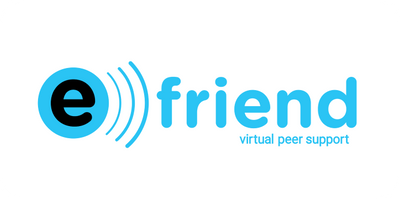If you’re dealing with difficult or distressing feelings, it can help to talk about what you’re going through. Opening up to someone you trust can make a world of difference to how you feel and how you deal with your experiences.
Talking about your emotions and experiences with a trusted friend, family member, community member or GP can help you to feel empowered, connected and hopeful.
But opening up about your emotions and experiences can be tough. You might feel concerned about feeling judged or invalidated, worry the other person won’t have the time to chat, or simply won’t care.
That’s why it’s important to choose the right person, and the right moment. If you can’t identify anyone, that’s okay! There are services that can help too. You can use this tool to find a GP you can talk to about your mental health.
Many people find that talking to someone is so helpful that they wish they had done it sooner.
If you’re ready to learn more about how to talk to someone, we’re here to help you dive into how to do it.
Why does talking to someone you trust help?
Talking to someone you trust is one of the best ways to feel better when you’re going through a tough time. From feeling connected to the people around you, to realising you are less alone in your experiences, opening up can change your perspective and help you feel better.
Talking to someone you trust can help by:
- Helping you to see that you’re not alone in going through tough times
- Providing stress relief or lightening the load of your concerns and burdens
- Breaking down your problems into smaller parts that are easier to understand and deal with
- Helping you gain a new perspective on a situation or experience, which can help you to find solutions or feel hopeful
- Verbalising your feelings. Sometimes when we use words to describe our experiences, we can become clearer about what is affecting us and how to move forward.
Opening up doesn’t mean you’re looking for someone to solve your problems – sometimes you just need someone to listen and give you the space to vent.
“When you’re feeling overwhelmed, opening up to someone you trust can take some weight off your shoulders.”
Who can you talk to?
One of the first things you might like to think about is who to talk to. Make a list of all of the people in your life that you trust. You might want to include family members, friends, or even a teacher or mentor.
Trusting someone with how you’re feeling is scary. If you are not sure if you can trust someone, it might be a good idea to share something a little smaller, about which you feel a little less vulnerable, and see how it feels. If they’re respectful and authentic, then you can try sharing a little more next time.
Sometimes talking to someone from outside of your personal life can be helpful or easier. You may feel more comfortable reaching out to a confidential service such as Friends for Good, or if you’re in crisis, remember you can always speak to Lifeline too.
When is the right time?
Timing is important when it comes to talking about really important things.
Once you’ve decided who to talk to, find a way to chat that works for you. Opening up about feelings and experiences is a big deal, so you’ll want to find a moment when your trusted person has the time to listen.
Sometimes talking face-to-face can feel like too much, so you could also consider chatting over the phone, via a message conversation, or even through a handwritten letter or drawing if that makes sense to you.
The best way to start a conversation is to find a time when your trusted person can give you their full attention. You’ll also want to feel comfortable, so choose somewhere that feels right for you. You might want to consider suggesting:
- Having a conversation at the end of an event or after catching up
- Going for a walk or doing an activity where you can also chat
- Asking the other person when is best for them to talk.
What do you say?
After you’ve figured out who to talk to, it might help to brainstorm what you’ll say. You could try writing your thoughts on a piece of paper, or speaking them out loud. Whatever makes you feel the most comfortable is the best option.
You might want to think about:
- What’s on your mind?
- What is your biggest concern?
- How or why has it been bothering you?
- How does it make you feel?
- How is it affecting you?
- What area of your life is this concern affecting the most?
It can also be helpful to be specific about what you need from your trusted person. Do you want someone to listen, or do you want help or advice? It can be helpful to communicate this from the start.
When you’re ready to have the conversation, it can help to focus on using ‘I’ statements. Some great conversation starting points could be:
- ‘I have been feeling…’
- ‘I’ve got some things on my mind, would you mind if we had a chat?’
- ‘I just wanted to let you know that…’
- ‘I am…’
- ‘I have been experiencing…’
If their reaction isn’t what you were looking for, don’t give up and swallow your feelings. Instead, you might like to reconsider who you’d like to talk to, or connect with a service that can help instead.






